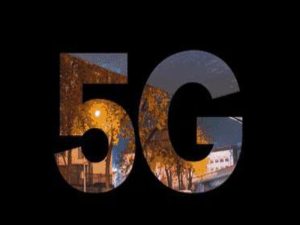Ki nouvo nan rezo 5G?










"Devlopman gwo echèl aplikasyon 5G se yon mezi enpòtan pou ankouraje bon jan kalite devlopman ekonomik, pèmèt transfòmasyon dijital la nan.... li piplis
AAU (Inite Pwosesis antèn aktif) se yon nouvo kalite ekipman prezante pa fondasyon rezo 5G la, epi li gen sèten... li piplis
Depi nan fen 2023, Aparèy ki gen rapò ak Wi-Fi 7 yo ap kòmanse ale sou mache a, ak Qualcomm, MediaTek, ak Intel... li piplis
Rapò Lekti limyè: Telekonik dirijan yo te mande depi lontan regilatè yo pran aksyon kont trafik done ki toujou ap ogmante.. li piplis
Tout moun konnen sa k ap antre nan epòk 5G la, paske plizyè koneksyon ak sèvis divèsifye te mete demand san parèy sou ladrès rezo a,... li piplis
[Shenzhen, Me 20, 2020] Dènyèman, Konferans Global analis Huawei a (GENYEN) 2020 te fèt nan Shenzhen. Huawei lage yon complète ... li piplis
1600G se yon modèl tradisyonèl WDM. Single-core sipòte kapasite 1600G. Eksepte pou kalson long distans tankou kalson nasyonal ak... li piplis
Avèk devlopman rapid nan teknoloji jeneratif AI, Motè rechèch yo ap sibi yon transfòmasyon pwofon ak piti piti en nan entelijan ... li piplis
Lisans ISP (Founisè Sèvis Entènèt) refere a yon founisè sèvis entènèt, sa vle di, yon sètifika kalifikasyon ke yon operatè telecom... li piplis
Modil optik yo disponib nan divès kalite pou satisfè kondisyon divèsifye. Classified by transmission rates Depending on transmission rates, modil optik... li piplis

